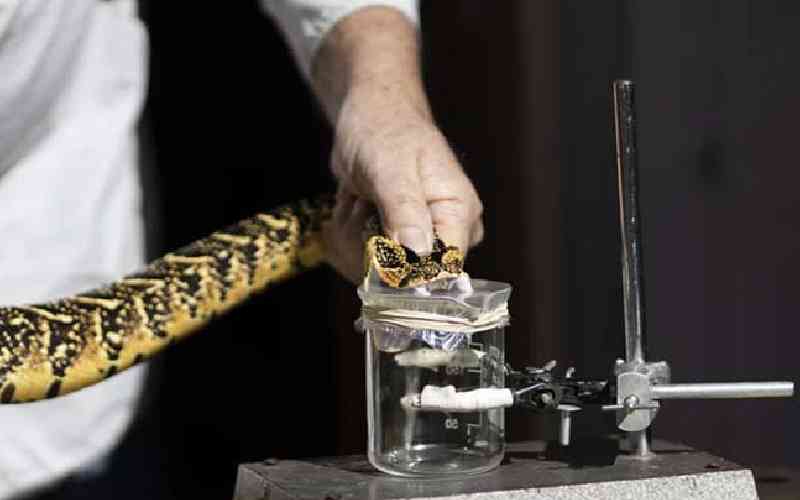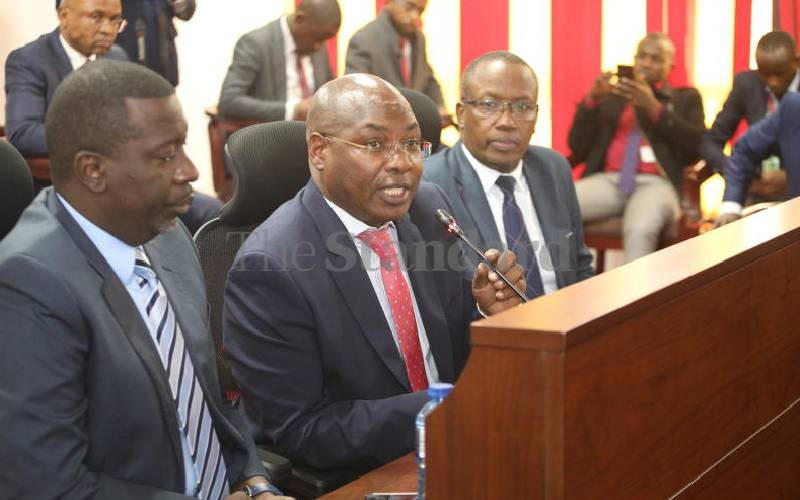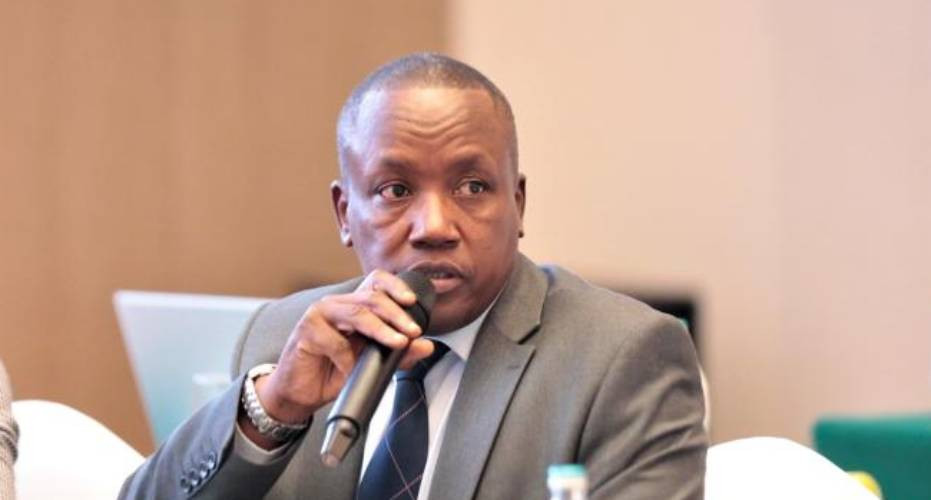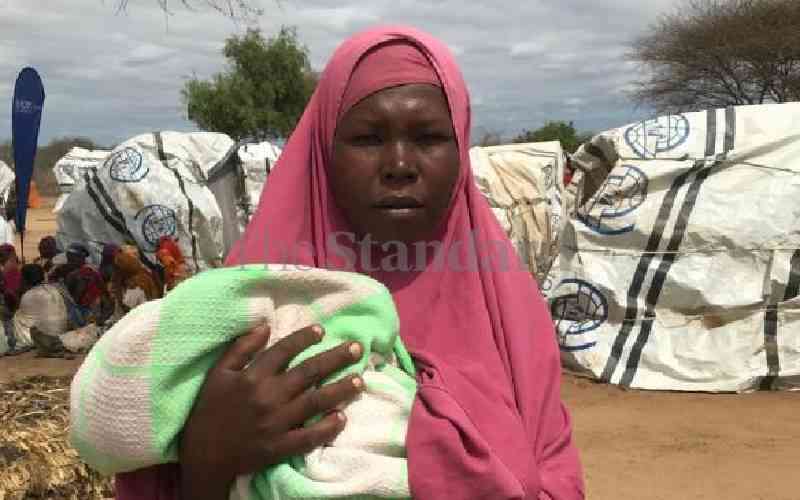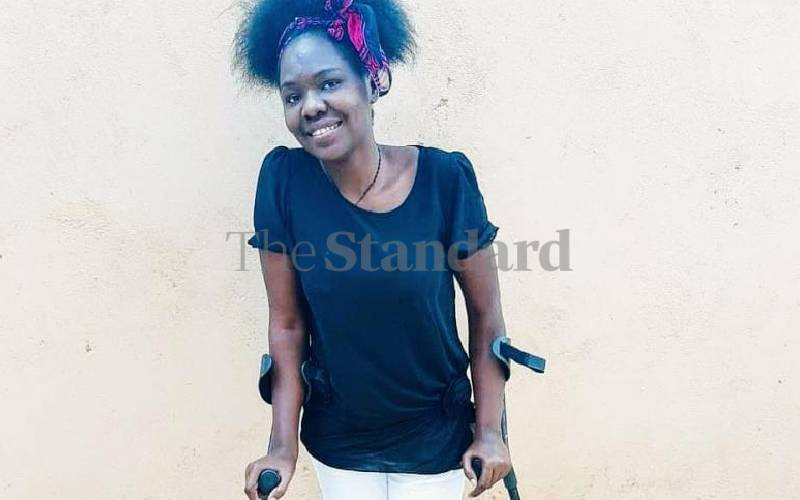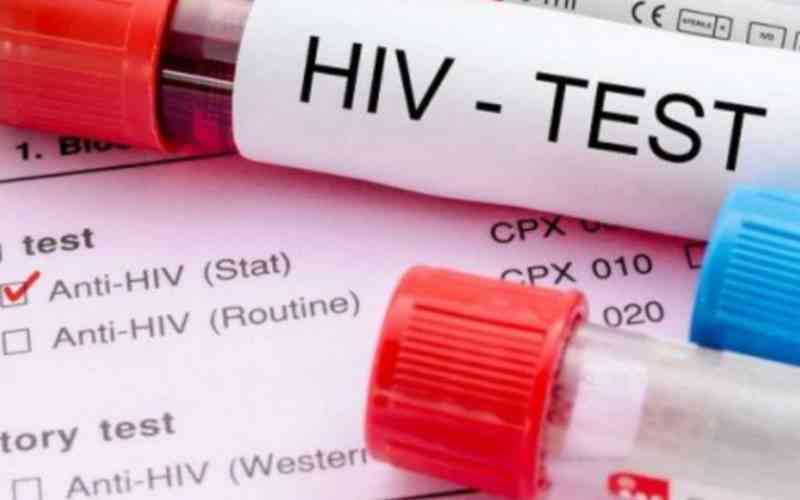
Motherhood… an exhilarating journey, yet a daunting one for those acutely aware of the lurking risks.
The ancient Jews believed that their women were so strong that they gave birth on their own before the arrival of midwives, hence the famous term, Hebrew birth.
But for some expectant mothers, the universe at times bears different yet twisted plans.
Some meticulously plan to deliver in hospitals only to end up welcoming their bundles of joy on motorbikes on their way to the local health facilities, with some even giving birth by the roadside.
But for some women in Tana River County, delivering under water during floods was an aberrant experience that came without the comfort of a choice.
In March and April this year, the predicted long rains started and pounded with unexpected vengeance that nobody anticipated. The damage was colossal, with many people displaced and crops destroyed. River Tana, belching with waters from huge tributaries from Mount Kenya and upper eastern regions, swept into villages and homes, like an angry monster.
“We were moving things in a rush, there was panic all over. I was helping one of my neighbours who was expectant… She’s not here in the IDP camp. She moved because of the outbreak of diseases.
- Mass mosquito net distribution kicks off in Tana River County
- Fathers defy norms, step up to end malnutrition of mothers, babies
Keep Reading
Recalls Rehema Baji, who lives in the Marafa IDP camp.
“As I was supporting her, she went into labour, in the middle of chaos. She gave birth in the water.It was a scary experience but luckily the mother and baby survived and were given medical attention,” she adds.
We meet 35-year-old Hawa Guya, at a different camp called Gala Mani. She was 8 months pregnant when she moved from her house during the floods.
“I thought I was going to lose my baby. My legs were swollen, so when the floods happened, I could not even move…My husband carried a few things, we got a boat, he put our children (and) took them to safety, then he came back for me,” she says.
When they moved to the temporary shelters provided by International Organisation for Migration (IOM), she had to adjust to the new normal.
“I would sit under a tree the whole day. Sometimes even going to relieve myself was hard. I was tired, stressed, legs swollen. It was a hard time,” says Hawa.
There are no hospitals where the temporary shelters are situated in Gala Mani. It costs them Sh200 from Gala Mani to Hola by a motorbike.
“I had false labour thrice. So you can imagine that is Sh200 one way. We cannot even afford food here, but, now we were forced to pay Sh400 transport to and fro for one person,” she says.
A few weeks later, her water broke early morning. She was rushed to the hospital, gave birth at 12pm and was discharged the following day.
Hawa says she never imagined herself raising her children in an IDP camp.
“We appreciate the temporary shelters and non-food items from IOM. But since they are temporary, it gets really cold at night. My baby has been coughing a lot, she coughs until she vomits,” she says.
Hawa and her husband sleep in a tent with their 8 children.
Her sentiments are echoed by 25-year-old Hadadi Ismail, who we come across outside her tent arranging utensils while holding her baby, Haluwa. She says the cold weather has also been ravaging her two-months-old baby.
We sit on a mat outside one of her neighbours tents under a shade.
“Apart from hunger, the tents are really cold at night. It’s even worse with a new born. Also in congested places there are sanitation issues. It’s not easy,” she says.
“I was scared I would die in the floods. I thought the baby I was carrying was also going to die, the fear was crippling. When we got to the camps, we had to create makeshift houses with rags before IOM gave us tents,” adds Hadadi.
Much as the pregnancy journey was hard, they had support from the local midwives. Gala Mani camp has two midwives, one of them is 60-year-old Fatuma Abdallah Hidawa.
“We really took care of the expectant mothers who were almost due. Apart from the pregnancy pressure, they had the trauma of the floods and fear that they might lose the babies or their lives. We gave them herbs and massaged them,” says Fatuma.
She adds that usually they have gloves to make their work easier. Since moving to the camp they have been forced to improvise.
Hawa’s husband, 29-year-old Mohammed Mgawa, says the pregnancy journey was a trying moment.
“The false labour was also a challenge because it costed us money that we don’t have, by going to the hospital regularly. I do casual jobs; I am a hustler,” he says. The temporary shelters have also been a challenge.
“Life has been hard. The shelters are not permanent and the weather has not been friendly. It gets really cold. We sleep on this mat. So if it gets cold at night we feel it from the ground, also when it rains, water gets in,” he says.
The Tana River County Secretary, Mwajuma Hiribae says through the Department of Health, Medical Services & Sanitation, integrated services that include Ante-Natal Clinic services, nutrition and immunisation have been provided to the communities living in the camps, through support from different organisations.
“The Department also has a special package custom-made for lactating and pregnant mothers with support from one of our partners known as mum kit which comes along with mother and baby essentials e.g. sanitary towels, lesso, baby clothing’s, baby diapers, baby shawl etc to cater for their needs,” she says.
Hawa Abdulghafoor, from Tana River Gender Department says they take medical services to the people.
“We take our services to the IDP camps, we take care of immunisation for newborns and contraceptive methods for mothers among other needs,” she says.
Joe Mbalu, Acting Secretary General in charge of Programmes at The Kenya Red cross, says Tana River has had the misfortune of multiple disasters ranging from extreme drought to floods.
“Our priorities have been life saving measures. We are involved in rescue operations where we support those who were affected by floods by providing them with basic services and medical support. Unfortunately, we have had some level of fatalities,” says Mbalu.
Head of Programmes at IOM Kenya, Sharif Faisal, says they have supported more than 100,000 people affected by the floods in Tana River, Mandera, Wajir, Garissa, Nairobi, HomaBay and Kisumu counties.
The Tana River County government has cluster approach, where they plan to relocate vulnerable communities to higher ground, and create permanent solutions for them; shelter, health facilities, education.
“This undertaking is very expensive because it means moving infrastructural investments like schools, health facilities, water structures to the new areas,” says County Seretary, Mwajuma Hiribae
Until this is realised, each night spells cold temperatures that risk being wet. And with it, a fretting moment for expectant women, whose fate at childbirth hangs by a thread. To parents with infants and toddlers, each dawn spells fear for the unknown. El Nino rains may be gone for now, but its morbid legacy lives on.
 The Standard Group Plc is a multi-media organization with investments in media platforms spanning newspaper print
operations, television, radio broadcasting, digital and online services. The Standard Group is recognized as a
leading multi-media house in Kenya with a key influence in matters of national and international interest.
The Standard Group Plc is a multi-media organization with investments in media platforms spanning newspaper print
operations, television, radio broadcasting, digital and online services. The Standard Group is recognized as a
leading multi-media house in Kenya with a key influence in matters of national and international interest.



